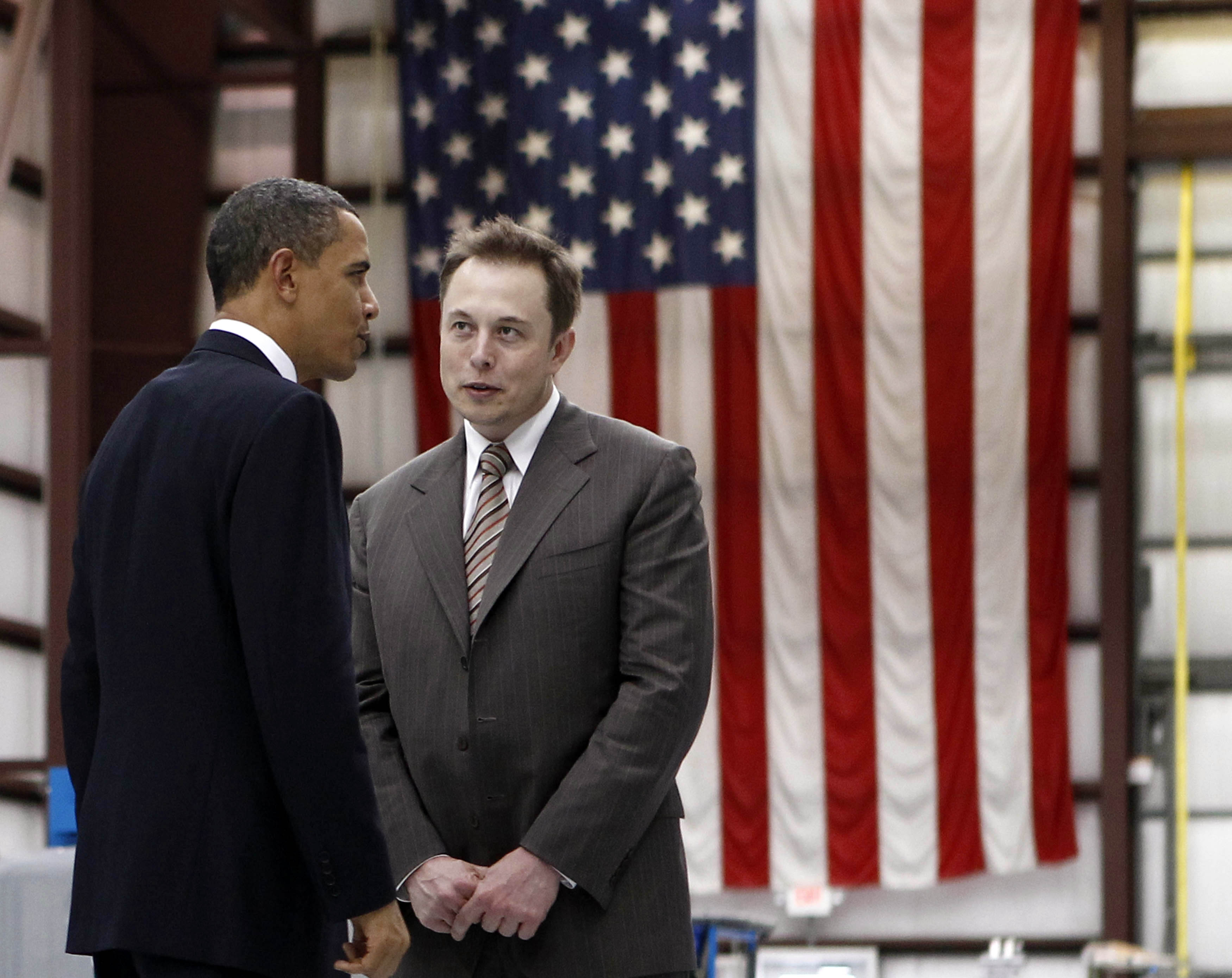In the latest excellent Sue Halpern NYRB piece, this one about Ashlee Vance’s Elon Musk bio, the critic characterizes the technologist as equal parts Iron Man and Tin Man, a person of otherworldly accomplishment who lacks a heart, his globe-saving goals having seemingly liberated him from a sense of empathy.
As Halpern notes, even Steve Jobs, given to auto-hagiography of stunning proportion, had ambitions dwarfed by Musk’s, who aims to not just save the planet but to also take us to a new one, engaging in a Space Race to Mars with NASA (while simultaneously doing business with the agency). The founder of Space X, Tesla, etc., may be parasitic on existing technologies, but he’s intent on revitalizing, not damaging, his hosts, doing so by bending giant corporations, entire industries and even governments to meet his will. An excerpt:
Two years after the creation of SpaceX, President George W. Bush announced an ambitious plan for manned space exploration called the Vision for Space Exploration. Three years later, NASA chief Michael Griffin suggested that the space agency could have a Mars mission off the ground in thirty years. (Just a few weeks ago, six NASA scientists emerged from an eight-month stint in a thirty-six-foot isolation dome on the side of Mauna Loa meant to mimic conditions on Mars.) Musk, ever the competitor, says he will get people to Mars by 2026. The race is on.
How are those Mars colonizers going to communicate with friends and family back on earth? Musk is working on that. He has applied to the Federal Communications Commission for permission to test a satellite-beamed Internet service that, he says, “would be like rebuilding the Internet in space.” The system would consist of four thousand small, low-orbiting satellites that would ring the earth, handing off services as they traveled through space. Though satellite Internet has been tried before, Musk thinks that his system, relying as it does on SpaceX’s own rockets and relatively inexpensive and small satellites, might actually work. Google and Fidelity apparently think so too. They recently invested $1 billion in SpaceX, in part, according to The Washington Post, to support Musk’s satellite Internet project.
While SpaceX’s four thousand circling satellites have the potential to create a whole new meaning for the World Wide Web, since they will beam down the Internet to every corner of the earth, the system holds additional interest for Musk. “Mars is going to need a global communications system, too,” he apparently told a group of engineers he was hoping to recruit at an event last January in Redmond, Washington. “A lot of what we do developing Earth-based communications can be leveraged for Mars as well, as crazy as that may sound.”•
Tags: Ashlee Vance, Elon Musk, Sue Halpern

